Converting your garage could add £45,000 to the value of your house – here's how to do it!
Do I need planning permission? How much does it cost? What about my car? All your key questions, answered

It’s been dubbed the new loft – the garage is the latest room being considered for conversion by families who are running out of space, but who can’t – or don’t – want to move.
Get your conversion just right with more help from our property advice.
And now, new research from Admiral Loans reveals that you could add an average of £45,000 to the value of your home – AND you don't need planning permission!
Admiral Loans came to that figure by looking at house price figures from Zoopla to calculate that a square foot of living space is worth an average of £350.
It then looked at the size of a typical single garage – 128 square feet – and worked out that the additional space is worth £45,000.
Converting a garage into usable living space is an affordable and relatively simple job. But before you start, you’ll need to consider the following.
How much does it cost to convert a garage?
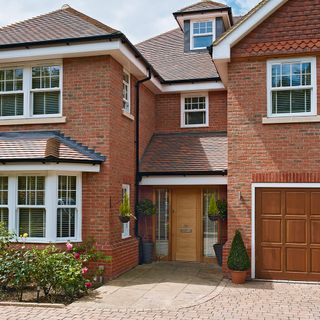
According to a report by bank Santander, of the 9.3 million private garages in the UK, 650,000 have already been turned into bedrooms (the most popular choice, at 29 per cent), as well as home offices, kitchen extensions, utility rooms or sitting rooms. And a further 470,000 are going to be converted into extra living space.
Santander calculates that the average garage conversion costs £6,300, once it’s been plastered and decorated. That works out much cheaper than moving home, with all the fees and costs like stamp duty. Or the £30,000 it costs to convert the average loft.
If you have an integral garage, the job should be quite simple and could even be taken on by a competent DIYer. If you need to make structural changes or if your garage is detached, it will be a more complex job involving knocking down walls, for example, and will cost far more.
A local builder is often the cheapest option, but a specialist firm, such as the Garage Conversion Company, should provide a guarantee and architectural service. The Garage Conversion Company charges around £10,000 to convert a single garage and £15,000 for a double.
SpaceSolutions charges around £11,000 to convert a single garage into a living space.
As for how long it will take, the time frame to completion could be anything from 10 days to several months, depending on the job.
Do I need planning permission to convert a garage?
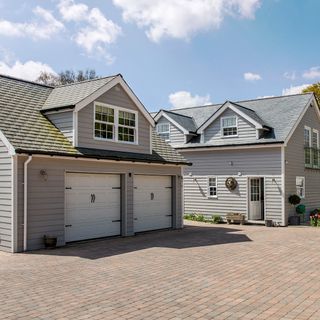
Permission isn’t usually required for a garage conversion, provided the work is internal and doesn’t involve enlarging the building. However, you must check with your local authority’s planning department first.
Garages that are listed or located in conservation areas will be less straightforward to convert. In all cases, your conversion will have to comply with Building Regulations, so speak to your council’s building control department before you begin. Some councils will also require Planning Permission if you’ll be substantially changing the exterior of your house.
Planning Portal has advice on planning rules and Building Regulations.
Should I convert my garage?

Before getting too excited about the extra space, do consider whether losing your garage will devalue your home.
'For two-car families in an area where parking is zoned or at a premium, a garage will be more valuable than an extra room,’ says Rightmove’s John Woodhall. ‘But if you have plenty of space off road to park your car and the job is well done, converting your garage will pay dividends.'
Do I need to convert my whole garage?
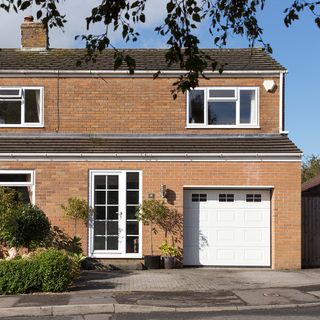
‘A standard single garage is approximately 150 sq ft, which is too small to fit a family sitting room and be able to open the doors,’ says the team at the Garage Conversion Company. ‘However, that's a lot of extra living space if you convert it to become an open-plan part of your house.’
‘For those with a double garage the perfect solution may lie in what we call a “part conversion” where typically the front or rear of the garage might be retained to house the lawnmower or your bicycle whilst the rest of the garage is converted into a useable room.’
More things to consider before converting a garage
1. The build quality of your garage
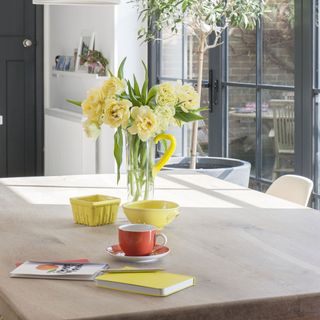
Not all garages can be converted – some are old, shoddily built and could be asbestos ridden. However, if yours was professionally built in the last 25 years, is made of brick or block and is structurally sound, there’s a good chance you could convert it with very little fuss. Start by getting advice from a surveyor at the Building Control department of your local council.
2. The practicalities of the job
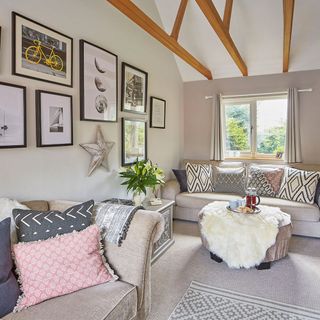
See how a garage conversion transformed this home: Have a look around this Scandi-style Eighties house in Oxfordshire
Garages are often on a different level from the house, so you may need to raise or lower floors or ceilings if you want your new room to flow on from the rest of your home. The garage door will need to be replaced with a window and matching bricks, so make sure your builder has access to materials that blend in with the rest of your house.
You’ll need heating and insulation to make it usable all year round; plumbing, lighting and security also need to be assessed.
3. How will you use the space?
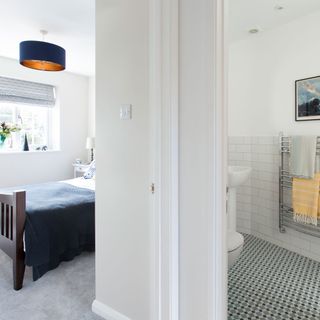
If you’ve earmarked the new room as an office or a hobby room, you may want to keep it separate from your main living space; if it’s going to be a living area or kitchen it will need to flow seamlessly from the rest of the house, so you may need to knock through an interior wall.
4. Will you need to move a boiler or electricity meter?
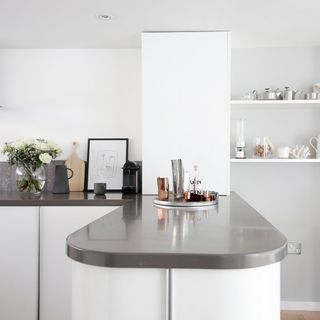
Moving the boiler or electricity meter to another room adds thousands of pounds to the cost, so box them in with pale-painted wooden units. Using a pale cream colour on the boxing avoids the stark, narrow feel some garages can suffer from.
5. Will I spoil the exterior of my house?
You could, so it's worth careful consideration. For example, bricks and windows need to be matched as closely as possible to the rest of the house.
Want more project advice? READ: Loft conversions – how to plan and cost your dream space
Will you be converting your garage using these tips? We would love to hear how you got on with your project.
Get the Ideal Home Newsletter
Sign up to our newsletter for style and decor inspiration, house makeovers, project advice and more.

Amy Cutmore is an experienced interiors editor and writer, who has worked on titles including Ideal Home, Homes & Gardens, LivingEtc, Real Homes, GardeningEtc, Top Ten Reviews and Country Life. And she's a winner of the PPA's Digital Content Leader of the Year. A homes journalist for two decades, she has a strong background in technology and appliances, and has a small portfolio of rental properties, so can offer advice to renters and rentees, alike.
-
 Instant Pot air fryers have been a great alternative to Ninja for years – this new family-sized release proves they still are
Instant Pot air fryers have been a great alternative to Ninja for years – this new family-sized release proves they still areThis air fryer promises to ‘save family dinner times’ with its large capacity and ease of use, but is it as good as it claims?
By Ellen Manning
-
 5 ways to organise food containers in your kitchen - for clutter-free cupboards that actually close
5 ways to organise food containers in your kitchen - for clutter-free cupboards that actually closeA ten minute task that provides so much satisfaction
By Holly Cockburn
-
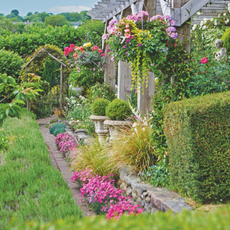 5 kitchen scraps to add to plants for brighter blooms according to florists - from coffee to pickle juice
5 kitchen scraps to add to plants for brighter blooms according to florists - from coffee to pickle juiceYour food waste is your gardens best friend
By Kezia Reynolds